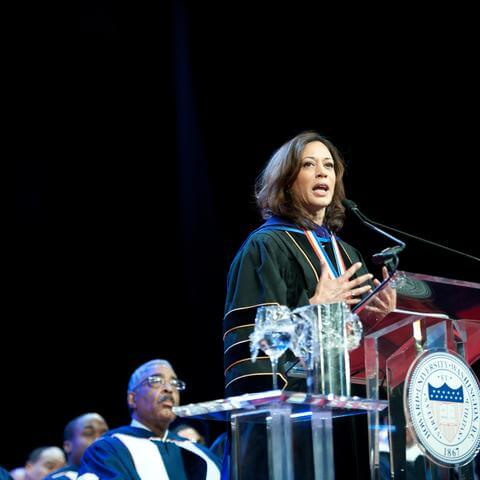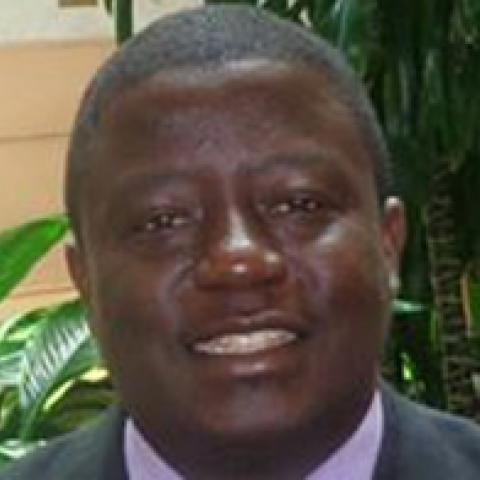With collaborations across 5 schools and colleges, representing over 50 areas of study, students will experience an interdisciplinary program.
Data Science and Analytics
DATA SCIENCE
Technology has the power to revolutionize our world. However, it is up to us to decide whether those changes will help or harm our society. We know firsthand how technology has discriminated against historically disenfranchised groups through the misuse of facial recognition software and predictive policing algorithms, for example.
And with increased reliance on data to address social problems, we need a new class of data scientists to understand the existing systems, work on redressing them before more data bias gets perpetuated, all the while creating new knowledge in the process. Howard University’s new MS in Applied Data Science is here to fill that gap. This degree connects the Howard ethos of justice, and excellence in truth and service, with the technical finesse and data science backing needed to understand and work towards technical advances that are equitably shared among all segments of society.
The Howard University MS in Applied Data Science will prepare students for successful careers in a burgeoning and prospering field. With a unique emphasis on Social Justice and the growing importance of understanding data across academic disciplines, this three-semester long program provides students with traditional data science opportunities while also offering specializations in the areas of Minority Health & Health Disparities, Environmental Justice, and Economic Empowerment.
Each and all these fields of study will equip students from traditional and non-traditional STEM backgrounds alike to enter diverse industries with solid expertise across data science disciplines with equity at the forefront of their work. The only question that remains is, will you be among them?
W.E.B. Du Bois, The Philadelphia Negro, 1898
Nevertheless here are social problems before us demanding careful study, questions awaiting satisfactory answers. We must study, we must investigate, we must attempt to solve ; and the utmost that the world can demand is, not lack of human interest and moral conviction, but rather the heart-quality of fairness, and an earnest desire for the truth despite its possible unpleasantness.
Stand Out and Stand Up

INTERDISCIPLINARITY

INNOVATION
Students will prioritize the use of data science to investigate questions pertinent to historically marginalized communities in an innovative manner.

INFLUENCE
Situated in the nation’s capital, the program allows students to gain insight into the analysis, interpretation, and application of data to real world problems with key decision makers.
The Center for Applied Data Science and Analytics at Howard University
The Center for Applied Data Science and Analytics at Howard University (CASDA) coordinates and facilitates interdisciplinary data science research and instruction in the primarily in the following areas:
• Economic empowerment
• Minority health & health disparities
• Social justice
• Environmental justice
To address these issues, CADSA provides the HU investigator community the resources needed to develop data-driven understandings of the current state of each of these research areas. Additionally, CADSA will develop proper insight into research trend directions and how the HU research effort can position itself to both benefit from and influence the developing trend directions. In summary, the CADSA is an HU institutional tool of inquiry that produces new information that can then be used to address important human problems. As a result, the research philosophy of the CADSA will be to inquire, to inform, and to intervene.
LEARN MORE ABOUT CADSAFaculty and Staff

Nathan Alexander
Assistant Graduate Director
Center for Applied Data Science and Analytics
nathan.alexander@howard.edu
Basheer Qolomany
Assistant Professor
Center for Applied Data Science and Analytics
Basheer.Qolomany@howard.edu
Zaki A. Sherif
HU Data Science Faculty Committee Member
Center for Applied Data Science and Analytics
zaki.sherif@Howard.edu
Edmund Essah Ameyaw, PhD
Center for Applied Data Science and Analytics
edmundessah.ameyaw@Howard.edu
LaTanya Brown-Robertson, PhD
she/her
Faculty Committee Member
Center for Applied Data Science and Analytics
l.brown-robertson@howard.edu
Symone Campbell, Ph.D.
She/Her
Adjunct Lecturer
Center for Applied Data Science and Analytics
Symone.Campbell1@howard.edu
Amy Yeboah Quarkume, Ph.D.
She/Her
Graduate Director
Center for Applied Data Science and Analytics
amy.yeboah@Howard.edu
Kenton Rambsy, PhD
He/Him
Data storytelling & Visualization Specialist
Center for Applied Data Science and Analytics
Kenton.Rambsy@howard.edu
Talitha Washington, Ph.D.
Executive Director
Center for Applied Data Science and Analytics
Talitha.Washington@howard.eduProgram Structure
Students have the flexibility to pursue the Master of Science in Data Science and Analytics degree on a part- or full-time schedule. Part-time students enroll in one or two courses each semester and take their courses in the evenings. Full-time students take three courses per semester.
Students earn the Master of Science in Data Science and Analytics by successfully completing thirty credit courses and a final internship/capstone project.
Curriculum
The only way to stop data from exacerbating historical disparities for marginalized communities is by producing data scientists who consider the importance of social consciousness and tackling sensitive issues of difference head-on.
Howard University’s new online M.S. in Applied Data Science and Analytics connects the Howard ethos of social justice and excellence in truth and service with the technical data science skills needed to understand and work toward equity among all segments of society. We challenge students to engage in issues concerning minority health & health disparities, environmental justice, and economic empowerment.
Howard's data science students have the opportunity to conduct original research, interact with our community, government and industry partners through an internship or practicum, produce a capstone project, and engage with world-class faculty.
Courses
Howard's data science students have the opportunity to conduct original research, interact with underrepresented communities, government and industry partners through an internship or practicum course, produce a capstone project, and engage with world-class faculty.
The courses prescribed by this program include:
Required Courses
Pre-Capstone (0 credits)
TBD
DATA-200. Introduction to Applied Data Science. 3crs. PREREQ: None.
Students will delve into the current landscape of data science, exploring its theories, tools, and practical applications. This course aims to equip students with a comprehensive understanding of data science and empower them to apply its skills effectively in comprehending the complexities of our world. Through the art of storytelling, data visualization, data cleaning, statistical analysis, and the development of practical products and tools, students will gain valuable insights derived from the practical application of data science. By the end of this course, students will possess the knowledge and proficiency to unravel meaningful patterns and trends, and to derive valuable insights from data to inform decision-making.
DATA-201. Computational Social Justice. 3crs. PREREQ: None.
This course is designed to help students think explicitly about their social responsibility as data scientists and the impact on the world of what they are building and analyzing. Using contemporary case studies from recent news stories and legal cases, students will learn about issues such as intellectual copyright, consent, data security, differences between privacy and confidentiality, difficulties of anonymization, and bias in artificial intelligence. In addition, students will be engaged with fundamental questions of justice in relation to data and computing in American society.
DATA-202. Statistically Measuring and Modeling Social Justice. 3crs. PREREQ: None.
In this course students will develop an understanding of statistics as a research tool. Students are expected to have some base knowledge of statistics from a prior course. Emphasis will be made on understanding statistical concepts and applying and interpreting tests of statistical inference for real life application. Content will include but not be limited to: visual representations of data, descriptive statistics, correlation and simple regression, sampling distributions, and the assumptions associated with and the application of selected inferential statistical procedures. Throughout the course there will be a strong emphasis on how statistical modeling can be a driving force for Social Justice.
DATA-301. Data Storytelling & Visualization. 3crs. PREREQ: None
In this course students will cultivate the ability to think critically about telling stories related to social justice questions that can be answered using data. Topics include urban food insecurity, minority health disparity related to COVID-19, policing, and community safety. Students will learn the principles behind effective data visualization and how to implement them in real analyses using Tableau software.
DATA 302: Applied Data Science for Social Impact 3crs. PREREQ: None.
This course will introduce students to how to apply data science skills to social issues. This course is broken down into two phases – (1) developing the critical lens to ask the right questions data and technology can answer, and (2) learning the concepts, techniques, and tools needed to deal with facets of applying data science in practice. Case studies topics include Black wealth equity, emphasizing reparations, historical patterns of Black economic growth, housing and property ownership, youth and adult employment. Real datasets are used in comprehensive projects.
DATA-303. Applied Machine Learning, Bias and Ethics. 3crs. PREREQ: DATA 200
The main aim of the course is to provide skills to apply machine learning algorithms on real applications. Students will gain experience using several supervised (classification) and unsupervised (clustering) techniques for creating predictive models. These include Bayesian methods, decision-tree methods, kernel-based methods and neural networks methods, as well as clustering and dimensionality reduction.
DATA-304. Engineering and Managing Data-Driven Change. 3crs. PREREQ: None
This course provides a broad understanding of the principles underlying data engineering and management. With the introduction of SQL, this course aims to help students get started with developing their own datasets through harvesting, processing, aggregation, analysis, and visualization to make data-driven decision. Working with a repository of public use data, students will discuss real case studies focused on specializations in the areas of Minority Health & Health Disparities, Environmental Justice, and Economic Empowerment. Real datasets are used in comprehensive projects.
DATA-801. Data Science Graduate Capstone. 1 cr. PREREQ: DATA 200, 201, 202, 301
The Capstone Project provides an opportunity for students to engage in high-level inquiry focusing on an area of specialization within data science. Students will complete a Capstone Projects.
DATA-802. Data Science Practicum/Internship. 2 crs. PREREQ: None
The Applied Data Science and Analytics Practicum /Internship course is an opportunity for students to apply principles, tools, theories, ideas, and skills learned in the classroom to a real-world problem. Student can engage in an (1) External Internship with an organization or government agency, (2) Internal Case Study Internship provided by the department, or (3) Internal Practicum research project to exercise their skills in Data Science and Data Analytics, and understand the culture around computing and management systems, operations, resources within a specialty area. The experience is obtained with organizations approved by the Center for Applied Data Science and Analytics Program under the guidance of faculty.
Elective Courses
DATA-203. Foundational Python for Data Science. 3crs. PREREQ: None
Unveil the capabilities of Python within the realm of data science via our foundational course. Tailored to provide essential aptitudes in data manipulation, analysis, and visualization, this course serves as a gateway into the swiftly advancing sphere of data science. Through social justice exercises and real-world scenarios, participants will immerse themselves in a comprehensive learning journey, striving to develop the core tenets, data structures, and libraries of Python.
DATA-400. Data Science and Environmental Justice. 3crs. PREREQ: None
Data collection, visualization, and analysis have been entangled in the struggle for racial and social justice because they can make injustice visible, imaginable, and thus actionable. With a focus on environmental justice, along with critical social science literature, students will gain a historical understanding of how minority and marginalized communities face bias and discrimination regarding environmental data, create maps and data visualizations using QGIS, Arch GIS and Tableau, identify how gaps in data can have short-and long-term effects on communities and how these gaps can be exacerbated when combined with social inequalities.
DATA-401. Introduction to Geographic Information Systems. 3crs. PREREQ: None
Geographic Information Systems (GIS) are tools for managing, describing, analyzing, and presenting information. The course seeks to provide students with a basic level of familiarity with several aspects of Geographic Information Systems and Geographic Information Science.
DATA-402. Text as Data. 3crs. PREREQ: DATA-200
This course will equip students on how to convert text to formats suitable for data analysis. Students will be introduced to data measurement tools, supervised learning approaches for document classification, vector representations, contextualized embeddings, pre-processing and natural language processing skills.
DATA-403. Mapping Black People, Spaces, and Culture. 3crs. PREREQ: None
This course is an exploration of mapping and geospatial analyses related tools that can be used to compile and visualize data. Student will join the process of mapping and exploring spaces with a study of Black history, culture, and storytelling.
DATA-410. Independent Study 3crs. PREREQ: None
-
Other Graduate Courses...
Partners
Research Partnerships
- Social Science Research Council
- data.org
- Johns Hopkins Data Science Lap
- Distributed AI Research Institute (DAIR)
- ACLU
- Brookings
- AIM AHEAD
- Black in AI
Corporate Partnerships
- Esri
- Accenture
- Amazon
- Mastercard
- AstraZeneca
Community Partnerships
- Prison Cells to PhD program
- NorthStar GIS
- National Black Justice Coalition
- Martha's Kitchen
- Arlington School District
- Black Wealth Data Center
- Data for Black Lives
Application Requirements
- Online application
- Current resume
- Transcripts from all previously attended institutions
- Personal statement and application essay
- Two letters of recommendation
No GRE score is required to apply.
❱ Fall entry (deadline for admission): April 15
❱ Spring entry (deadline for admission): November 1
2025 - 2026 Tuition and Fees
Tuition: $1,642 per credit hour / $4926 per 3 credit course
Fees: $816 per semester
Contact Us
Amy Yeboah Quarkume, Ph.D. (she/her)
Graduate Director of the Master of Science Data Science Program
Associate Professor of Africana Studies
DataScience@howard.edu

